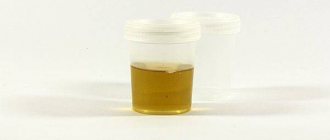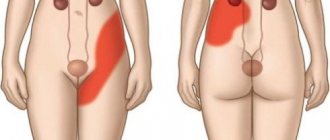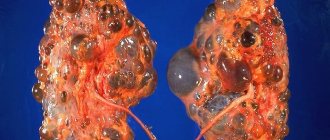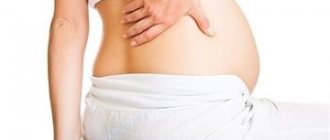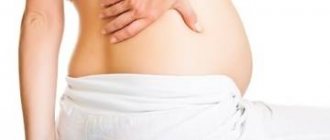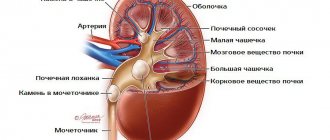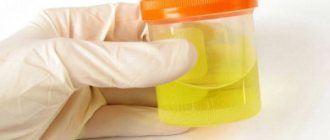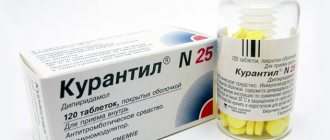From the moment of conception until the onset of labor, a woman’s kidneys bear a colossal load. In this regard, at this time the risk of diseases of these internal organs increases significantly.
Today, sand in the kidneys in pregnant women is not such a rarity. Therefore, in order to avoid problems during pregnancy, doctors urge all women to undergo a complete kidney examination before conceiving a child. Moreover, many kidney diseases are characterized by the fact that when they appear, it is very difficult not only to bear a child, but even to become pregnant.
Causes of the disease
If a woman is diagnosed with urolithiasis, this means that there are stones in the kidneys and urinary tract. If their size does not exceed three millimeters, we are talking about such a thing as sand. This is an accumulation of uric acid salts. They settle on the walls of the organ and interfere with its normal functioning. If disturbances persist for a long time, the entire body suffers. As a result, all sorts of problems arise during pregnancy and after childbirth.
Urolithiasis of the kidneys
The main reason for the formation of sand in the kidneys during pregnancy is a violation of the water-salt balance. It usually starts before conception and gets much worse after conception. The urinary system is subjected to increased stress, as a result of which the risk of developing renal colic increases significantly. Kidney stones can also form for other reasons:
- Low physical activity - many pregnant women prefer to spend all their free time in bed, and this is a big mistake. It is very important to keep the whole body in good shape and prevent a deficiency of calcium and phosphorus in the blood.
- Unhealthy diet – It can increase the levels of purines, which cause kidney stones. Meat products are rich in this substance.
- Abuse of drinks that contain a lot of dyes and preservatives. During pregnancy, it is important to follow a proper diet.
- Hereditary predisposition.
- Exacerbation of a disease that already exists in the body. The cause is hormonal imbalance.
The formation of sand in the kidneys is possible throughout pregnancy. After twenty weeks, the risk of developing the disease increases significantly, as the organs of the urinary system experience increased stress. In addition, during this period, metabolic processes are often disrupted, which is associated with changes in hormonal levels.
Possible treatment measures
If sand is detected in the kidneys during pregnancy, the doctor prescribes treatment only after a thorough examination and obtaining the results. When drawing up a treatment regimen, he takes into account the individual characteristics of the expectant mother and fetus, the development of pathological processes, and the presence of concomitant diseases.
Diet
Proper nutrition plays a primary role in complex treatment, since eating healthy foods allows you to get rid of unpleasant symptoms and give birth to a healthy toddler without resorting to drug therapy.
It is known that during the period of bearing a child, the diet is contraindicated for women, but in case of preventing exacerbation of nephrolithiasis, the following recommendations should be followed:
- limit foods containing excess amounts of oxalic acid and vitamin C;
- drink enough fluid;
- reduce the amount of salt and sugar;
- include foods rich in calcium in your diet, as it is excreted from the body.
You should eat fractionally 5-6 times a day, in between meals you should drink the optimal amount of liquid (if there is no tendency to swelling). The list of permitted drinks includes juices, fruit drinks from cranberries, blueberries, currants, lingonberries, weak tea, decoctions and infusions of herbs.
ethnoscience
Traditional medicine offers a wide range of recipes, the use of which helps to crush stones, remove their parts, as well as sand from the kidneys. The course of treatment is 1 month, subject to the instructions of the attending physician. The agents used have diuretic, anti-inflammatory and antispasmodic effects.
The most effective is considered to be the collection of the following plants:
- sweet clover;
- immortelle;
- St. John's wort;
- bearberry;
- burnet;
- cornflower flowers.
Infusions of chamomile, horsetail, kidney tea, water with a spoonful of honey (in the morning), and fir oil help well. Treatment with folk remedies is indicated only after consultation with the attending physician.
Drugs
Drug therapy in the presence of stones with a diameter of less than 1-2 mm is aimed at gradually removing them from the body with minimal discomfort for the woman. The use of the following medications can speed up the process:
- antispasmodics – “Drotaverine”, “No-Shpa”;
- painkillers analgesics - with caution in the 1st-3rd trimester under the supervision of a doctor;
- antibacterial drugs - in case of infection;
- diuretics based on herbal components - “Canephron”, “Brusniver”.
If persistent pain persists, the doctor may prescribe narcotic drugs or novocaine blockade. If the need for surgical intervention arises, an individual operation plan is drawn up with the participation of a nephrologist, gynecologist, and therapist.
Symptoms of the disease
One of the features of urolithiasis is that it can occur for a long time without any symptoms. In many women, sand is discovered by chance during an ultrasound examination. Often the disease manifests itself only when the size of the stones reaches five millimeters. In most patients, the first manifestation of the pathology is an attack of renal colic. Kidney stones can be recognized by the following signs:
- dull aching pain in the lower back;
- discomfort when urinating;
- frequent urge to go to the toilet;
- change in urine color.
During pregnancy, women regularly go to the doctor and first take a urine test, so it is very easy to notice cloudiness. Further actions depend on the results of the analysis. If the color of your urine changes and your condition worsens, you should definitely talk to your doctor. Symptoms of the disease include the following:
- Blood in the urine – moving into the bladder, stones can injure the urinary duct.
- Renal colic is accompanied by unbearable pain. It is caused by blockage of the ureters, causing urine to accumulate in the kidney.
- Pain when urinating is a clear sign that stones or sand are leaving the body. But at the same time they scratch the urethra.
Severe pain in the kidneys and bloody urine are warning signs
Symptoms of the disease are detected in expectant mothers in the period from the twelfth to the sixteenth week, sometimes several weeks before the birth of the baby. A pregnant woman suffers from sharp paroxysmal pain. Exacerbation occurs due to the heavy load to which almost all organs are exposed. Sometimes problems are diagnosed against the background of the development of pyelonephritis.
Clinical signs
Any symptoms should alert the expectant mother. There are certain symptoms that you should consult a doctor if you experience them:
- arms and legs swell;
- aching pain is felt in the lumbar region or in the side;
- body temperature rises to insignificant levels;
- if you tap lightly on the lower back, you feel pain inside;
- blood pressure suddenly changes;
- In the process of urination, a stinging sensation is felt, as fine sand comes out.
The symptoms listed are complex. Timely consultation with a doctor will help prevent renal colic. When a large stone forms, the symptoms intensify.
Particles accumulating in the kidneys will cause the development of urolithiasis in the future. Against the backdrop of the formation of a large calculus, the situation becomes more complicated. You can't do it without qualified help.
Stages of flow
In the acute form of the disease, the following symptoms are present, in which you need to urgently consult a doctor, namely:
- severe pain in the lumbar region, which radiates to the bladder, genitals and inner thigh;
- body temperature increases, fever and severe sweating appear;
- frequent urge to urinate;
- sharp pain when emptying the bladder.
Blood impurities indicate damage to the mucous membrane of the urinary system by a large stone. This condition requires qualified help.
It is necessary to take measures to prevent the occurrence of serious complications and consequences. Not only the life of the mother, but also the baby is at risk.
Complications
Sand in the kidneys is the first stage of urolithiasis. If you ignore this phenomenon, it will progress and lead to the formation of large stones and an attack of renal colic. The latter is characterized by:
- severe pain in the lumbar region;
- discomfort when urinating;
- urinary retention;
- blood impurities in urine;
- nausea and vomiting;
- high body temperature.
The attack ends when the stone passes or changes its position in the urinary tract. During pregnancy, the attack is not as severe. The explanation is very simple - physiological expansion of the renal pelvis. Sometimes the stone comes out almost painlessly.
Pregnancy and kidney problems
Sand in the kidneys during pregnancy is today considered second in the list of pathologies of women in an interesting position. Doctors talk about an increase in patients with this diagnosis over the past few years. Perhaps this is what explains the increase in complications during pregnancy. Urolithiasis among pregnant women is considered a rather dangerous disease, due to the fact that the outflow of urine is disrupted when the stone is retained in the urinary duct. These factors contribute to the rapid formation of the inflammation process. Thus, ailments of the genitourinary system are formed that can only be cured with a course of antibiotics. Also, one should not forget that when stones pass, unbearable pain occurs in the lower back or genitals, which negatively affects the mother and baby.
Risks to the fetus
Kidney stones and pregnancy are a very dangerous combination that poses a threat not only to the expectant mother, but also to her baby. The main negative consequences include:
- spontaneous termination of pregnancy due to renal colic;
- the addition of an infection to the disease that can infect the fetus;
- stagnation of urine – provokes the development of a dangerous pathology – pyelonephritis.
There are certain complications for the fetus in the presence of kidney stones
During an attack, all muscles contract, and the tone of the uterus increases. Overexertion leads to placental abruption, miscarriage or premature birth. The presence of stones in the kidneys and bladder is an obstacle to natural childbirth, so doctors often prescribe a cesarean section for the expectant mother. Any inflammatory process is dangerous for both the woman and the unborn child, so if alarming symptoms appear, you should immediately run to the doctor.
Sand in the kidneys during pregnancy
From the moment of conception until childbirth, the female body experiences a lot of stress. Of course, during this period the risk of formation and further development of many ailments of internal organs greatly increases. Today, the presence of sand in the kidneys of a future mother is not uncommon, so our medical center in Moscow offers you its services to get rid of this problem. Based on their vast experience, as well as modern approaches to therapy, our doctors will help alleviate the woman’s condition without harming the baby. Only with us will you be provided with qualified…
- "Moscow Doctor"
- INN: 7713266359
- Checkpoint: 771301001
- OKPO: 53778165
- OGRN: 1027700136760
- LIC: LO-77-01-012765
- "Chertanovo I"
- INN: 7726023297
- Checkpoint: 772601001
- OKPO: 0603290
- OGRN: 1027739180490
- LIC: LO-77-01-004101
- "Protek"
- INN: 7726076940
- Checkpoint: 772601001
- OKPO: 16342412
- OGRN: 1027739749036
- LIC: LO-77-01-014453
From the moment of conception until childbirth, the female body experiences a lot of stress. Of course, during this period the risk of formation and further development of many ailments of internal organs greatly increases. Today, the presence of sand in the kidneys of a future mother is not uncommon, so our medical center in Moscow offers you its services to get rid of this problem. Based on their vast experience, as well as modern approaches to therapy, our doctors will help alleviate the woman’s condition without harming the baby. Only we will provide you with qualified assistance and guarantee an excellent result!
Treatment of the disease
Treatment of sand and kidney stones is aimed at relieving pain from renal colic and eliminating the source of infection. It is important to remember that pregnant women should not take many medications.
Drug treatment
When a woman faces a problem, the only question that worries her is what to do if kidney stones appear during pregnancy. If the tumors are small enough - no more than three millimeters - conservative therapy is carried out. As a result, the stones may pass on their own within one month. To speed up this process, the doctor may prescribe medications to the pregnant woman such as:
- Antispasmodics – Drotaverine or Papaverine. They relax the muscles of the urinary tract.
- Analgesics - quickly relieve pain, but require caution when used in the first and last trimester.
- Antibacterial agents are prescribed for concomitant inflammation in the kidneys.
- Herbal diuretics – Canephron, Brusniver. These drugs improve the flow of urine.
Only the attending physician can choose a treatment that will not harm the mother and unborn child.
Recently, homeopathic medicines have been gaining popularity. They have a natural composition, therefore they are safe for women and fetuses. At the same time, medications normalize metabolic processes. To enhance the effect, the expectant mother is recommended to undergo herbal treatment. But since many plants are prohibited during pregnancy, only a doctor can select a specific treatment regimen.
Diet
During treatment and thereafter, it is important to change your usual lifestyle.
If sand in the kidneys is first diagnosed during pregnancy, it is necessary to determine the cause of the problems and adjust the diet:
For successful recovery, it is recommended to follow simple rules:
- Limit salt intake to five grams per day.
- Increase the volume of fluid you drink to two liters per day.
- Avoid salty, spicy and spicy foods.
- To live an active lifestyle.
During pregnancy, you can drink berry fruit drinks, dried fruit compote, weak green tea, and still mineral water. Any drinks should be warm or slightly chilled. You can add a little sugar or honey to the tea. The liquid should be drunk in small portions throughout the day.
Surgery
In case of severe inflammation and in the absence of results from conservative therapy, surgery is performed. Undoubtedly, such manipulations are extremely dangerous for pregnancy and can provoke its termination. But if the expected harm from the operation is significantly less than the risk of losing the baby, the operation is quite possible.
In some cases, surgical intervention is necessary
Surgery is performed using anesthesia. During the operation, all stones are removed, as a result of which it becomes possible to save the child and give birth to him on time. If urolithiasis appears at a period of thirty-six weeks, labor is induced, and the stones are removed after the baby is born.
Diagnosis of pathology
If there is sand in the kidneys during pregnancy, the doctor understands what to do only after a comprehensive examination. The main method for diagnosing urolithiasis is ultrasound. However, the presence of fine suspension can be detected only by darkening in the region of the renal lobe. The resolution of modern ultrasound machines does not allow us to determine more accurately the nature and size of microliths. Therefore, the doctor prescribes a number of additional procedures.
The method of studying the chemical composition of urine is considered quite informative. Based on the results, the type of sediment in the urine, the acid-base balance, the presence of red blood cells, white blood cells, and protein are determined. Urinalysis according to Nechiporenko and Zimnitsky helps to identify sand in the kidneys with high accuracy. A biochemical test for urea and creatinine is considered necessary.
What to do with renal colic
An attack of urolithiasis always begins suddenly and develops rapidly. In such a situation, you need to call a medical team, and before their arrival, give the woman an antispasmodic - it will relieve the pain. During pregnancy, it is allowed to use No-shpa and Papaverine. You can put a Nitroglycerin tablet under your tongue - it relaxes the smooth muscles. Before the doctor arrives, you need to monitor the volume of urine excreted, which must be collected for further research. During an attack of renal colic it is strictly prohibited:
- warm the affected areas with a hot heating pad;
- take a bath;
- use medications that contain narcotic substances.
Preventive measures
Any disease can be prevented if you remember the simple recommendations of specialists. The same applies to sand in the kidneys and urolithiasis.
- reduce the consumption of salty, spicy, fatty and spicy foods;
- adhere to the optimal drinking regime;
- to refuse from bad habits;
- maintain an active lifestyle;
- undergo preventive examinations, visit doctors and promptly treat diseases of the urinary system, the same applies to the digestive organs;
- control weight.
Sand in the kidneys may indicate the development of a serious disease. You can't ignore the symptoms. It is necessary to consult a doctor, especially for a pregnant woman. Urolithiasis often causes premature birth or early termination of pregnancy.
Expectant mothers are recommended to undergo examinations and tests in order to promptly detect abnormalities and prevent complications.
Prevention
To prevent the development of urolithiasis and the formation of sand in the kidneys, it is enough to follow simple recommendations:
- exclude harmful foods from the diet;
- observe drinking regime;
- increase physical activity;
- treat any illness in a timely manner;
- give up bad habits;
- control your weight.
Following these simple rules will help you avoid problems. It’s even better to undergo a comprehensive examination at the pregnancy planning stage. If stones are found, they can be disposed of in the most appropriate way.
Diagnostic measures
Numerous methods can be used to determine sand in the kidneys. But not all of them are allowed for pregnant women.
During pregnancy, the most accurate diagnostic method is ultrasound. The child is completely safe.
The doctor receives information about the location of the lesion and the degree of development of pathological processes. Ultrasound shows the condition of the ureters and parenchyma.
X-rays during pregnancy are strictly contraindicated for women.
A general urine test according to Nechiporenko and Zimnitsky helps determine sand in the kidneys. Based on the results, the salt concentration and oxalic acid content are determined. Pregnant women are also prescribed a biochemical blood test for creatinine and urea.
Causes of sand formation and risk factors
The exact mechanism of renal microlith formation is not fully understood. Urine contains many mineral and organic substances that are prone to crystallization, but there are also protective substances - hydrophilic colloids that prevent stone formation. A number of factors lead to an imbalance of urine components and cause urolithiasis:
- metabolic disorders: excessive secretion of uric or oxalic acids, failure of phosphorus-calcium metabolism,
- decreased tone or changes in the structure of the urinary tract, leading to difficulty in the outflow of urine, its stagnation and increased concentration,
- frequent infectious diseases of the genitourinary area.
In a woman expecting a child, her metabolism accelerates, the need for the absorption of calcium and many other stone-forming minerals increases, and the amount of protective substances in the urine increases. Thanks to this, sand does not form in the kidneys of pregnant women.
But if the patient becomes pregnant, already having a history of urolithiasis, the symptoms of the disease may appear faster and more severely than in the usual state. Therefore, it requires particularly careful monitoring by a gynecologist, together with a therapist and nephrologist.
Risk factors for developing urolithiasis:
- hereditary predisposition,
- unbalanced diet with an emphasis on smoked meats, seafood, preservatives,
- sedentary lifestyle - physical inactivity,
- drinking “hard” drinking water,
- taking calcium and ascorbic acid supplements,
- frequent state of dehydration,
- chronic pyelonephritis,
- gastrointestinal diseases, problems with the nervous or endocrine systems.
